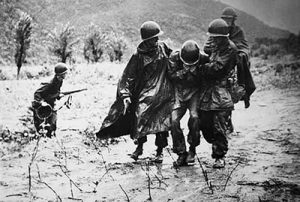 PORTLAND, OR—Being exposed to combat makes a significant difference in how military veterans fare during aging, according to a new study, which also found that the experience increases the risk for depression and anxiety later in life.
PORTLAND, OR—Being exposed to combat makes a significant difference in how military veterans fare during aging, according to a new study, which also found that the experience increases the risk for depression and anxiety later in life.
“There are a lot factors of aging that can impact mental health in late life, but there is something about having been a combat veteran that is especially important,” pointed out co-author Carolyn Aldwin, PhD, director of the Center for Healthy Aging Research in the College of Public Health and Human Sciences at Oregon State University.
The report in the journal Psychology and Aging described how military service and, especially, seeing action appear to be hidden variables in research on aging.1
Researchers from the VA Boston Healthcare System and Boston University also participated in the study, which was funded by the National Institutes on Aging and the VA.
Aldwin noted that, while many aging studies ask participants about veteran status, few zero in on whether veterans fare differently if they were or were not exposed to combat. The study team sought to remedy that.
Used for the research was the VA Normative Aging Study, a longitudinal study that began during the 1960s to investigate aging in initially healthy men. The current researchers conducted further analysis to delve into the relationship between combat exposure and depressive and anxiety symptoms, as well as self-rated health and stressful life events.
The study concluded that noncombat veterans “showed little systematic change in depressive and anxiety symptoms with age, whereas combat veterans showed U-shaped nonlinear changes, with higher levels in midlife decreasing until the mid-60s and then increasing again in the 70s and 80s. These findings support the notion that military service, and especially combat exposure, is a hidden variable in aging research.”

